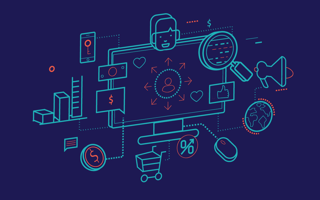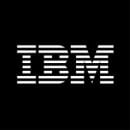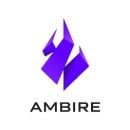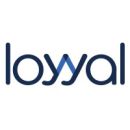In today’s marketing-saturated world, product placement is a constant. Whether it’s through sponsor names on NBA jerseys, large billboards and building ads along your morning train commute or targeted online ads tied to recently searched items, marketing teams are always fighting for our attention.
The global digital advertising and marketing industry is projected to reach a size of $946.9 billion by 2027 — more than double where it sat in 2020. But as the industry has grown, so have challenges and inefficiencies. For example, advertising fraud has become a major issue, leading to billions of dollars in losses for the industry. Ad fraud involves deceiving advertisers with fake engagement typically from bots to make money — a practice that hurts an ad campaign’s reach and can skew valuable data.
Blockchain in advertising and marketing could offer a simple solution to this pressing problem with the cost-saving transparency and real-time data aggregation of its decentralized ledger technology.
How Is Blockchain Used in Marketing and Advertising
With blockchain advancing, the technology has several other beneficial uses for the advertising and marketing industry, such as building customer loyalty programs and facilitating contract trading. Below are nine examples of blockchain in marketing and advertising you should know.
Managing Digital Advertising and Marketing Data With Blockchain
To make the most of their money, companies collect more consumer data than ever before. This data, in turn, directly affects major business decisions like the introduction of new products, price points and future ad campaigns. But this stockpile of customer data is also highly vulnerable to ad fraud and mismanagement, which contributes to inefficiency.
The following companies help marketing and advertising teams optimize their content for digital platforms based on the data they gather. They also help combat ad fraud and reduce advertising supply chain mismanagement.
Location: Armonk, New York
How it’s using blockchain in marketing and advertising: Technology giant IBM uses its blockchain platform to verify the advertising supply chain. The company partnered with advertising and analytics platform Mediaocean to offer an end-to-end ledger that gives marketing teams better data insight. The goal is to help businesses eliminate wasteful spending on unnecessary third-parties, and to expose potentially fraudulent data.
Location: New York, New York
How it’s using blockchain in marketing and advertising: NYIAX is the world’s first marketplace for advertising contract trading. Developed in partnership with Nasdaq, the company uses blockchain to give advertisers and publishers a platform to buy, sell and trade advertising contracts in a futures methodology. The company’s patented, blockchain-backed “Financial Matching Engine” verifies quality advertising contracts that are available for trade or sale and connects publishers with advertising buyers.
Location: Fully Remote
How it’s using blockchain in marketing and advertising: Verasity is a blockchain company that has positioned itself at the intersection of esports, digital entertainment and adtech. As a solution to ad fraud, Verasity offers VeraViews, which “uses a patented Proof-of-View technology to record valid ad engagement and it stores the data immutably on a public ledger.” It ensures the engagement advertisers pay for is legitimate and provides real-time transparency that helps publishers get their money quicker.
Location: Fully Remote
How it’s using blockchain in marketing and advertising: The Ambire AdEx platform is free for both advertisers and publishers to use. Its self-serve format comes with real-time reporting that offers advertisers insights about which channels are most effective, while also cutting out the middleman to maximize publishers’ earnings, which they maintain full autonomy over.
Blockchain for Fostering Customer Relationships
With more than 3 billion users, social media has allowed brands to connect and engage with fans on a deeper, more personalized level than ever before. Advertisers are constantly trying to find innovative ways to win over consumers’ attention and inspire brand loyalty.
To differentiate themselves, companies must offer unique rewards and build genuine relationships with their customers. The following blockchain companies help marketing and advertising teams step up their engagement and customer relationship building practices.
Location: San Francisco, California
How it’s using blockchain in marketing and advertising: Loyyal uses blockchain tokenization and smart contracts to help businesses expand customer loyalty programs. The company’s Blockchain-as-a-Service (BaaS) has already been implemented in the travel, credit card and employee incentives industries.
The Loyyal blockchain platform helps companies trace their loyalty tokens throughout the entire customer rewards process and helps marketing teams to personalize promotions based on an individual’s rewards spending and behaviors.
Location: Los Angeles, California
How it’s using blockchain in marketing and advertising: Cryptibles is an Ethereum blockchain-based digital token designed for customer engagement, trading and collecting. The company’s app enables marketing teams to design their own interactive digital currency or token that can be used to increase engagement among consumers or as a digital incentive to purchase more items.
Cryptibles launched its app in late 2017 to help marketing teams reward their customers with unique, collectible items. The company markets its product to mobile game developers and influencers.
Consumer-Centric Blockchain Advertising
Mass advertising can be overwhelming, and customers may be inundated with repetitive marketing materials and product misinformation. It can also lead to profit loss. Online consumers also want to know and even have some degree of control over how the data advertisers collect about them is being used.
These blockchain companies help consumers navigate the morass.
Location: San Francisco, California
How it’s using blockchain in marketing and advertising: Brave’s blockchain helps to block unwanted ads and, via its Brave Rewards, enables users, publishers and creators to earn rewards in the form of Basic Attention Tokens (BAT). Through Brave Private Ads, “privacy-preserving, first-party ads” users can opt in to view in exchange for BAT, advertisers earn revenue and gain insight on their ads’ effectiveness without violating user privacy. Meanwhile, Brave’s ad blocker uses blockchain to track harmful ad popups and neutralize them before they can spread malware. The shields are completely customizable and on a per-site basis.
Location: San Jose, California
How it’s using blockchain in marketing and advertising: BitClave uses blockchain to reward consumers for sharing their personal data with marketing teams. Via a transparent ledger, the BitClave Active Search Ecosystem (BASE) enables users to control their identity and decide who can and cannot access their information. In exchange for access to information, marketing and advertising teams build direct relationships with customers and offer them uniquely targeted promotions to match their preferences.
BitClave operates in a number of industries — including auto insurance, child care, home rentals and car sales — to help businesses more effectively target their audiences and give consumers control over who is handling their personal information.











